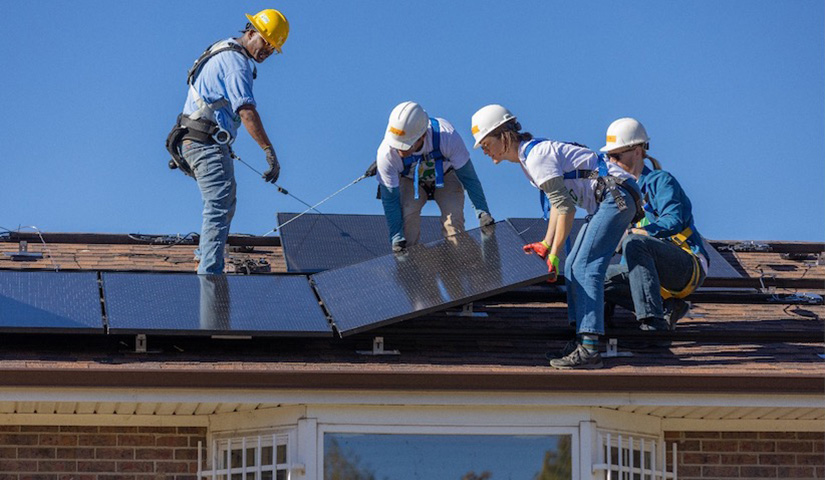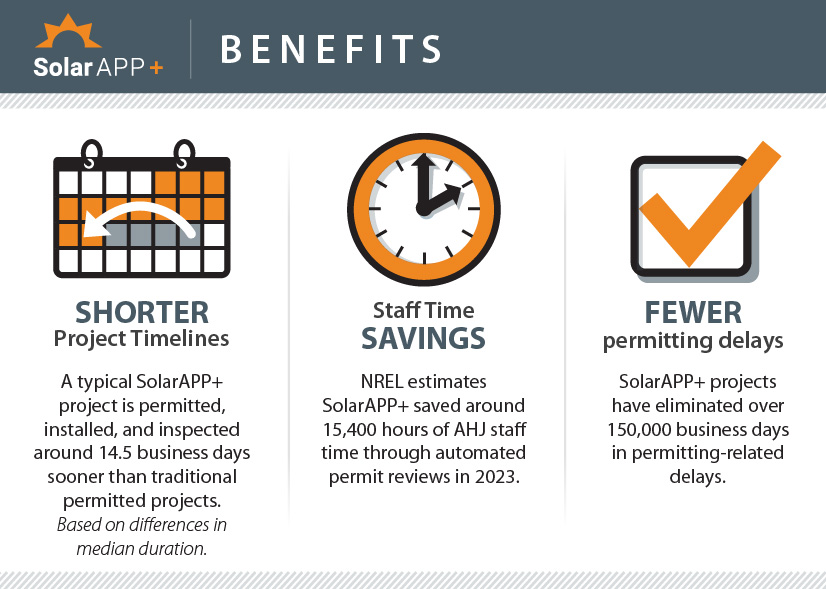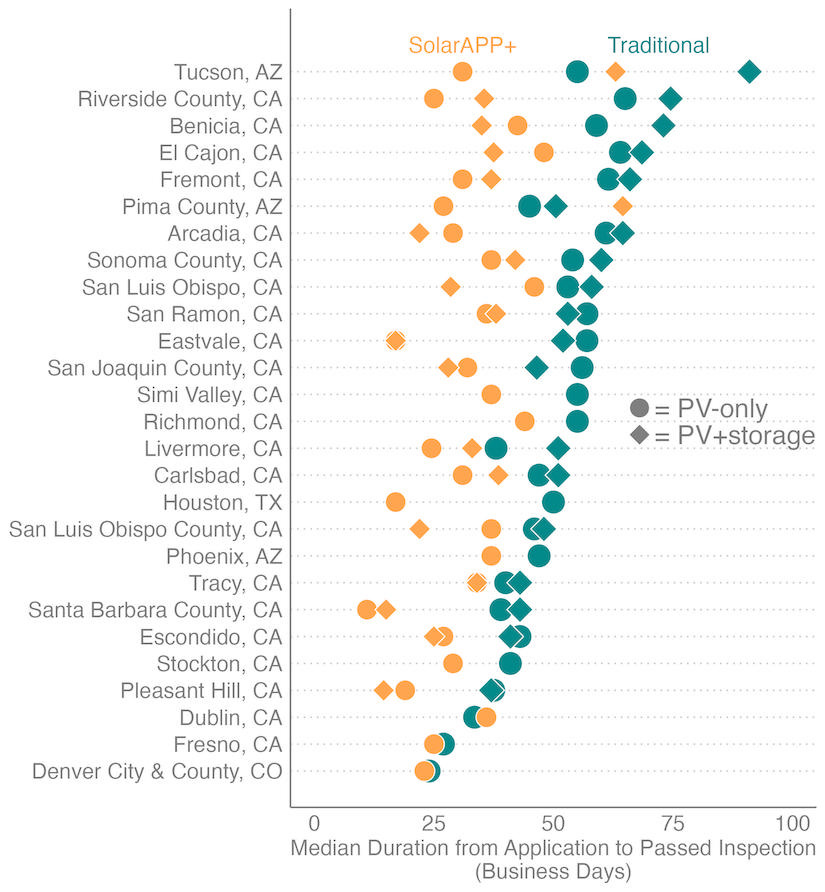Safe and Fast Permitting Using NREL’s SolarAPP+ Continued To Grow Throughout 2023
15,400 Hours of Staff Time Saved and Projects Installed 14 Days Sooner With Automated Solar Permitting Platform

Across the United States, rooftop photovoltaic (PV) installations continue to grow, with over 671,000 installs in 2022—and final numbers are expected to be even higher in 2023. Local governments must permit each installation, checking the initial design and final installation for safety in a timely manner so residents can enjoy the advantages of clean rooftop solar energy.
The free Solar Automated Permit Processing Plus (SolarAPP+) automated online permitting platform instantly issues a permit for residential solar PV or PV-plus-storage systems if they pass an automated code compliance check, saving valuable time for local governments and solar contractors. The platform also compiles an inspection checklist to streamline and enhance safety of the final inspection.
Recent data on the SolarAPP+ platform suggest that the entire permitting process—plan review, permit issuance, installation, and inspection—takes around 14.5 business days fewer with SolarAPP+ than traditionally permitted projects.
SolarAPP+ was launched in 2019 by the U.S. Department of Energy’s National Renewable Energy Laboratory (NREL), in collaboration with industry and the building safety community, and has continued to grow in adoption each year since. Performance data from 2023 demonstrate that SolarAPP+ continues to expedite ever-larger amounts of residential solar permits across the United States.
SolarAPP+ 2023 Performance: Permitting Timelines Shorter by 14.5 Business Days; Staff Time Reduced by 15,400 Hours

Since the inception of SolarAPP+, NREL has completed a performance review for the platform each year. In these performance reviews, researchers summarize adoption trends to date and compare various metrics for solar PV and solar-plus-storage systems permitted through SolarAPP+ to those permitted through traditional permitting processes.
One of the main benefits of SolarAPP+ to solar installers is the reduction of solar PV project timelines. In 2023, NREL researchers found that the full median duration from permit submission to final passed inspection for PV-only projects was 33 days for SolarAPP+ permits and 47.5 days for traditional permits. This suggests that SolarAPP+ reduces full permitting timelines by around 14.5 days or 31% (see figure below).

Below are some additional key results from the 2023 SolarAPP+ Performance Review:
- Staff time savings: SolarAPP+ saved approximately 15,400 hours of permitting department staff time.
- Fewer permitting-related delays: SolarAPP+ eliminated over 150,000 business days in permitting-related delays.
- Increased platform adoption rates: 97 local governments had publicly launched the SolarAPP+ platform by the end of 2023, and 70 more were in the piloting stage. Another 149 were testing SolarAPP+ or were in the onboarding phase.
- Disadvantaged communities expressed interest: 192 interested local governments met typical criteria for disadvantaged communities (median incomes less than 80% of state median income).
- Permit volume up: 668 installers submitted 18,906 permits across 150 local governments in 2023. This included 4,834 permits submitted as part of a solar-plus-storage pilot program in 131 local governments. SolarAPP+ permits accounted for around 43% of all permits issued in participating local governments.
Automated Solar Permitting Benefits U.S. Communities
Standardizing and automating the solar permitting process to ensure code compliance and promote safety is critical to increasing the adoption of solar energy. The benefits of increased rooftop solar to U.S. communities include:
- Decarbonization of the local grid
- Local job creation
- Lower utility bills
- Energy resilience.
Traditional solar permitting methods vary between jurisdictions and can increase costs and installation timelines, causing uncertainty for solar installers and homeowners alike.
SolarAPP+ was developed to address these concerns with the solar permitting process and help U.S. communities realize the benefits of rooftop solar PV safely and quickly. The platform standardizes local government permitting for most residential rooftop PV and solar-plus-storage systems by allowing solar contractors to:
- Upload system specifications
- Automatically check specifications for code compliance
- Obtain instant approval for code-compliant systems.
The software is freely available to local governments and is supported by administrative fees paid by installers. SolarAPP+ is managed by the SolarAPP Foundation, a nonprofit formed to ensure that all key solar permitting stakeholders are included to make SolarAPP+ a success. The foundation’s board, which has equal representation from the solar industry and the building code enforcement community, oversees the development and management of SolarAPP+.
To learn more about SolarAPP+’s 2023 performance, register for our June 26 webinar.
Visit solarapp.nrel.gov and learn how your community can automate your solar permitting process with SolarAPP+.

